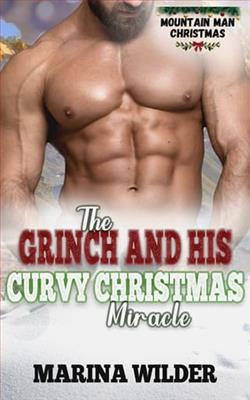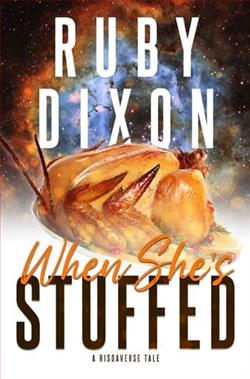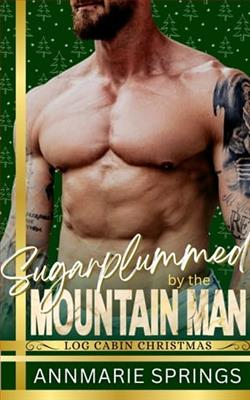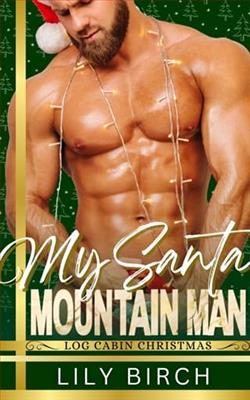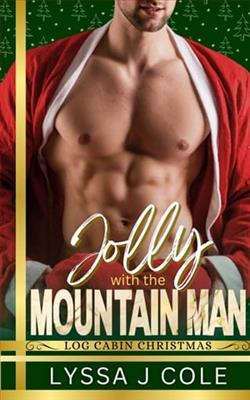Page 1 of Sunset at Embthwaite Farm
Chapter One
Anna Mowbray dugher thumb deep down into the compost, enjoying, somewhat perversely, the feel of the soil sinking underneath her nail. There was something satisfying about doing work that got you dirty. Something wonderful about planting a seed, letting it grow.
She dropped the seed into the tiny well she’d made and then covered it with more compost, patted it down. It was the fifteenth she’d done that morning, all the little pots lined up on the potting bench, her breath coming out in frosty puffs as she worked.
The greenhouse at Embthwaite Farm hadn’t been used in ages, probably not since she’d left, thirteen years ago. She’d wandered into its cobwebby interior when she’d first returned a few weeks ago, completely at a loss at being back at the place that held so many painful memories, which she’d walked away from in something of a stupor, not that Anna could explain that to the people who mattered most—her two grown-up daughters.
A soft sigh escaped her, and she reached for another pot and began to fill it with compost. There was something both miraculous and natural about planting something, she reflected. It amazed her every time she saw the first tiny green seedling shooting up through the soil, truly a miracle, and yet the way the whole world worked.
It made her draw rather unfortunate parallels to motherhood, which was also both natural and miraculous, or at least was meant to be, if you believed the greeting cards, the parenting books, the Instagram feeds. It hadn’t been either for Anna, which was why she was out here, on a freezing January morning, instead of inside with her children, making memories. Good ones.
After being away for so many years, she’d been back at Embthwaite Farm for just two weeks. She’d come when her older daughter Rachel had texted her to say her father, Anna’s ex-husband Peter, was dying of a brain tumour. Both Rachel and her sister Harriet were tending to him, and Rachel had written, rather repressively, that she’d only texted because she thought Anna ought to know. Her oldest daughter hadn’t invited her back, not specifically; her attitude had been more one of simply relaying factual information. And yet Anna had come.
Two weeks later, she was continuing to wonder why. It had not been an easy landing, but then she hadn’t expected it to be. You couldn’t more or less abandon your children—even if they had been nearly eighteen and nineteen years of age—for so long and not expect some painful repercussions. Hostility, even hatred, or cool indifference, which in its own way hurt even more.
Anna felt as if she’d experienced the whole range of those unpleasant emotions since she’d been back—the indifference from Rachel, the hostility from Harriet. The situation had thawed alittlebit over Christmas, or at least Anna had felt as if it had, when they’d celebrated the opening of the hotel owned by Harriet’s boyfriend Quinn. Harriet had made cookies for the Christmas party and had been buzzing with orders ever since. Rachel, who had relocated to the farm when Peter had first taken ill, was starting her own investment management company; her office was the dining room, and she was often with their neighbour Ben Mackey, with whom she’d recently started a relationship.
They both seemed busy and happy, and Anna was delighted that their lives had turned out so well. She just wished she could be a part of it all, instead of hiding out here in the greenhouse. She’d come back ostensibly to help care for Peter, but her daughters had insisted they could manage on their own. She’d barely seen her ex-husband since she’d arrived; admittedly, he’d been sleeping a lot, but when she’d dared to peek in his bedroom, he’d simply glanced at her, harrumphed, and then looked away.
Well, had she really expected any other kind of response? It was more than he’d given her for most of their marriage, although maybe that was unfair. It was so easy to let your mind snag on the painful memories rather than the good ones, the way your jumper might get caught by brambles. Tugging yourself free hurt, and usually ended up with something being wrecked.
Anna didn’t want that to happen this time, which was why she was still here, two weeks on, with her daughters stepping around her like she was a stranger, or maybe even a statue. A guest they didn’t want to stay, at any rate, and yet she hadn’t gone because if she left now, she feared they would never reconcile. She would lose her daughters forever, something she couldn’t bear to think about, even though they’d already been lost to her, more in the case of Harriet and a little less for Rachel, for thirteen years already.
Still, as long as she was here, there was hope…or so she kept telling herself. She continued with the planting for another half hour, filling pot after pot with compost, pushing the snapdragon seeds down into it. She wasn’t even sure why she was doing it; the state of the greenhouse and garden suggested no one had planted a thing since she’d left, and she most likely wouldn’t be here long enough to nurture these seedlings, plant them out and watch them grow.
There was another parallel there and one Anna didn’t want to make, yet her mind inexorably went there, stayed.You didn’t stay to see your daughters grow. You didn’t help them with their struggles. You are the most unnatural mother in the world.
She drew a breath that was only a little bit ragged and then pushed her neat, silvery hair behind her ears. Her fingers were freezing, and she was desperate for a coffee. She was simply going to have to brave going back to the house and bearding the two lionesses in their homely den.
Anna slipped out of the greenhouse, her boots crunching on the frost-tipped grass. On this January morning, the world looked magical, the mist drifting up in ghostly shreds that caught on the hills rising sharply behind the farmhouse, the sun filtering through the white cloud that would most likely melt away by midday. Everything that could be was rimed in frost—every leaf, every twig, every blade of grass, a world outlined in sparkling white, glinting under the sunlight.
She took a moment simply to stand there and breathe it all in, remember just what she’d loved about this place, before it had all gone wrong…although, realistically, it had all gone wrong before anything had even started. She just hadn’t realised it at the time. Still, shehadloved this place, once upon a time. It had felt magical, especially after a childhood in the bleak and boring suburbs of Reading, living in a brick semi-detached with two parents who had worked all the time, not seeing the point of anything outside of academia. Coming to a place where you could breathe properly, and see the world around you, and set your own hours, and start to dream…it had felt wonderful, for a little while.
The light in the kitchen at the back of the house was on, and Anna could see someone moving around. Harriet or Rachel? Her girls looked so similar—dark hair and eyes, Rachel willowy, Harriet a bit curvier. Both of them resembled their father so much in his colouring—so unlike Anna’s fair, now silver, hair and pale blue eyes—that it amazed her that Harriet had been convinced she wasn’t Peter Mowbray’s biological daughter. It was understandable, of course, becausehe’dbeen convinced of that fact…even though it was as obvious as the snub nose on Harriet’s face, the same as her father’s, that it couldn’t possibly be true.
Even if you said it was?
Yet another regret, piled on top of so many others, an immovable heap in the middle of Anna’s heart, a heaviness she carried with her everywhere, so she sometimes felt as if she were dragging something behind her, or maybe on her back, haggard and limping from the effort.
At the back door, she eased off her welly boots and left them upside down on the boot rack before she opened the door and stepped into the warm, welcoming kitchen. The rumble of the Rayburn, the smell of fresh coffee and yesterday’s baking, the laundry drying on the rack hoisted above the stove…it all felt sohomely, and for a second, Anna could remember when she’d felt happy here, or at least convinced herself, for a short while, that she was.
Then she saw Rachel standing by the kettle, about to pour herself a cup of coffee, the relaxed look on her face turning instantly guarded as she caught sight of her mother.
“Good morning,” Anna greeted her as lightly as she could. It took so much effort to keep sounding relaxed and friendly when she wasn’t getting a single thing back; after two weeks, she felt positively drained from it. “Did you sleep well?”
“Yes, I suppose.” Rachel lifted the French press, about to pour out some coffee, and then glanced at Anna. “Would you like some coffee?” It sounded as if it had cost her something, to ask such a simple question, and as if she’d really rather Anna said no, she didn’t.
“I’d love some, thank you,” Anna replied as warmly as she could without sounding desperate or deranged, both of which she sometimes felt. She wanted her daughters to forgive her, to accept her, to open up and talk honestly. So far, it hadn’t happened. “It’s really cold out there,” she remarked as she took off her coat. “Beautiful, but cold.”
Rachel took another cup from its hook and began to pour. “What were you doing outside so early? Going for a walk?”
Anna hesitated and then said, “No, I was in the greenhouse, planting up some snapdragons.”
Rachel raised her eyebrows, a look of surprise as well as blatant scepticism on her face. Clearly, she didn’t see the point in her mother doing such a thing, and Anna couldn’t really blame her.
“How long will those take to grow?” she asked, and Anna struggled not to wince at the implication—the same thought she had, that she wouldn’t be around to plant them out.
“About seven to fourteen days for the first seedlings to sprout,” she replied. “But they’ll stay in the greenhouse until the danger of frost has passed.”









